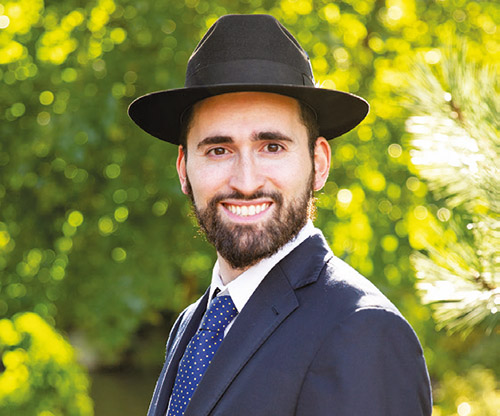
The Jewish Link conducted an interview with Rabbi Shaya Winiarz, a mohel in the Elizabeth, New Jersey area, to learn about his work.
JL: Thank you for joining us Rabbi Winiarz.
RW: You’re very welcome.
JL: What can you tell us about your work as a mohel? Is that what you do full-time?
RW: No, not at all. I’m a rav of a shul called Congregation Beis Hillel, in the Elizabeth/Union area of New Jersey. I also teach Halacha at Bruriah High School for Girls, which is in the area. I do milah on the side. It’s always a nice thing to have a side parnasa, especially in a place which doesn’t have other mohelim in the area. As far as I know, I’m the only mohel in Elizabeth.
JL: How did you learn milah in the first place?
RW: I went to the London School of Circumcision. I know that sounds like a big institution, but the reality is that it’s one individual there who happens to be a very good mohel. He’s been doing it for years, and he’s basically cornered the market on doing milah on non-Jews who want it either for religious reasons or for cultural reasons.
JL: Is he a rabbi? Or a doctor?
RW: Neither. He’s a working man who has very good mazel in business. I only spent two weeks there, but managed to do close to 25 brisim in that time. You know, it’s always hard to learn milah, since you need to have babies being born, and they usually take nine months or so. But if you learn in a business, you learn much faster.
JL: Do you enjoy being a mohel?
RW: I sure do! It’s so meaningful to be able to bring children into the bris of Avraham Avinu. And I’ll also sometimes get a good story out of some of the brisim.
JL: Can you share one of those good stories with our readership?
RW: Sure. I was once called into a Chabad House for the bris of a 4 year old boy. Why didn’t the four year old have a bris yet, you ask? The answer was, his mother had been married to a non-Jew, and being irreligious, she didn’t get a bris for her son when he was born. Now that she was returning to Hashem and the Torah, she wanted to get her son a bris. I expressed at the time how beautiful it is that this lady is returning home. The Chabad rabbi explained to me that I didn’t even know the half of it. “Rabbi,” he said, “This lady’s mother is also intermarried. And her grandmother is as well!” I was blown away. Three generations of intermarriage! But the Jewish spark just would not go out. You can’t extinguish the pintele Yid. And this boy got his bris.
JL: That’s a great story. Are non-frum Jews also interested in milah? And are they willing to pay?
RW: Yes and no. Many are interested in milah, but they wouldn’t necessarily pay for it. But I always say (and I don’t mind this being printed), every Jewish boy deserves a bris, even if his parents won’t pay for it. I do prefer to get paid for a job, but I’m willing to do the bris even if the parents can’t pay or won’t pay. I’m announcing here in the paper—if someone knows of a not-yet-frum Jew who has a baby boy, and the parents would be willing to have a bris but they are not willing to pay—call me! I’d be honored to do the bris for free.
JL: That’s good to know. What else can you tell us about your mohel work? What are some perks of working in this field?
RW: Well, it’s always nice to get to meet the sandek. A family will often give the honor to a distinguished rav, and it makes for a good opportunity to meet special people. I remember one bris at which the sandek was a distinguished rosh yeshiva. I was almost a bit nervous that he’d critique my work. After the bris was over, I asked him “So how did I do?” He answered “I have no idea. Blood makes me queasy, so I closed my eyes!”
JL: That’s funny. I guess not everyone can handle the sight of blood. How are you in that regard?
RW: I’m fine with it. Besides being a mohel, I’m a shochet too. So blood doesn’t scare me.
JL: A shochet? Is that also something you practice regularly?
RW: No, not really, except maybe for kapparos. I’m okay buying chicken in the supermarket; I don’t find any special meaning in shechting my own supper. But giving a milah to my own son or to other baby boys—that’s something special!
JL: True. So how can people reach you for milah jobs?
RW: I can be reached at 718-801-1925, or via email at [email protected].
JL: Thank you for speaking with us today, Rabbi Winiarz. Hatzlacha with your milah work, and all your other jobs as well!
RW: Thank you! Amen.













